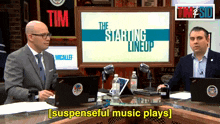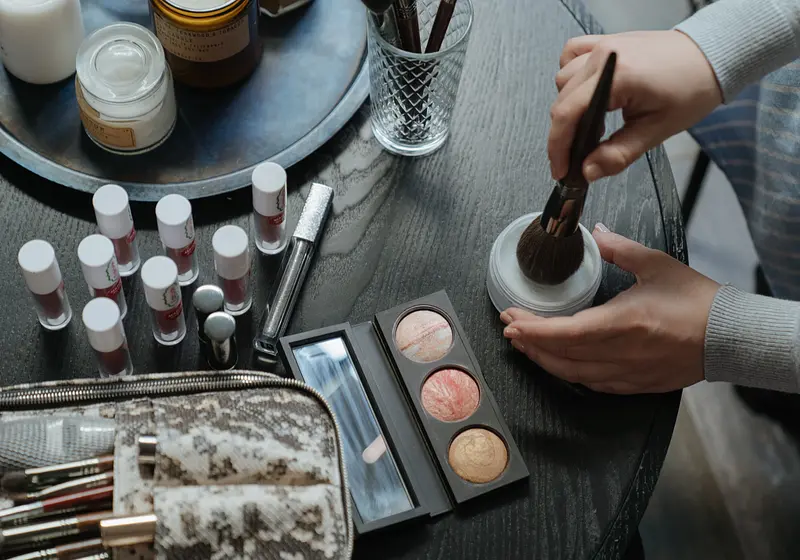From the Charlotte Tilbury Blush Wands to the ever-so-famous Stanley cups, The Drunk elephant serums and the Airpods pro max, influencers worldwide are convincing their followers and millions of other social media users that they simply have to have these products. And while some of these products may work magic, every different influencer is getting paid to promote different products, leading to an overwhelming flow of options and choices in our markets.
This flow convinces us that we simply must need everything shown to us by our favourite influencers, regardless of what the durability, price point or even quality may be. This is what de-influencing aims to solve.
Let us slide into your dms 🥰
Get notified of top trending articles like this one every week! (we won't spam you)What is de-influencing?
In simple terms, de-influencing is a new trend in TikTok that involves influencers and content creators using their platforms to encourage their followers to focus on consuming more sustainable and affordable products rather than being influenced by materialistic and superficial products they see advocated for online. Influencers are now aiming to be more transparent about their experiences with a particular product, and why these products are simply “not worth the hype”.These influencers also provide cheaper and more durable alternatives to these products and strongly urge their followers not to give into these micro trends at a macro price.
The de-influencing TikTok trend also addresses the issue of over-consumption, which is a major problem in our society today. Influencers often promote a culture of constant buying and materialism, which can lead to over-consumption and waste.
De-influencing encourages people to adopt more environmentally friendly and sustainable lifestyles in order to escape the cycle of excessive consumption. Influencers might share advice on waste reduction strategies like using reusable water bottles and buying secondhand clothing rather than new clothes.
De-influencing is a trend that encourages people to make better purchasing decisions and to only invest in items that they genuinely need or that make them happy. Overconsumption can be avoided and waste minimised as a result.
Take the Quiz: Which Indian city is the perfect holiday spot for you!?
Let's match you with an Indian city that you would love!
Why has this trend become so popular?
High inflation and economic uncertainty have now made people more cautious of their spending habits.
This is in turn causing consumers to choose products that they see themselves using in the long run, as well as products that are affordable.
Influencers often use TikTok to promote products or services, which can be misleading or manipulative. Some may exaggerate the benefits of a product or fail to disclose that they are being paid to promote it. There have been concerns over the authenticity of influencer recommendations.
Recently, popular creator Mikayla Nogueira was accused of wearing false eyelashes in a sponsored video promoting L’Oréal mascara. The incident, referred to as MascaraGate, went viral and left users wondering if they could trust the opinions of influencers who benefit financially from recommending products. You can read more about the incident here .
Why is it so important to de-influence?
Numerous issues, such as resource depletion, environmental damage, and personal debt, can result from excessive consumption. Furthermore, excessive consumption frequently promotes a consumerist and materialistic society, which can exacerbate social and economic inequalities.
Therefore, it is crucial for influencers to counteract their followers' propensity for excessive consumption. This can be done by encouraging followers to engage in sustainable and responsible consumerism, encouraging them to make thoughtful purchases, and emphasising the drawbacks of excessive consumption.
By doing this, influencers can significantly contribute to the cause of a more just and sustainable society. They can inspire their followers to put their ideals and well-being before material goods and assist them in making more informed judgements.
De-influencing can also help consumers understand what products are really worth purchasing and makes each consumer sure of their purchasing power.
How can we avoid falling into the trap of influencer culture?
1. Decide if you really need it and will still use it even if the trend dies out:
Take your time to decide if the product you see online will truly be of use even after the trend passes and if it is a product that you see yourself using daily or weekly.
2. Look at the expiration date:
If you want to splurge on a particular makeup/skincare item, then I highly recommend checking the product's shelf life so that the product does not go to waste and you can obtain the maximum yield from it. This also promotes sustainability.
3. Compare prices to find alternatives:
Another way to truly get a bang for your buck would be to research and compare the best prices for a product, or to find dupes for a product of your choice. This also helps if the product you buy is something you think you will be using for a short period of time.
4. Find a sustainable way to dispose of the product after consumption
Finally, ensure that after using the product completely, you find sustainable ways to dispose of it. Cosmetic companies are slowly starting to launch refills so that your outer packaging can stay the same. Similarly, look for companies that allow you to send back empty product casings for an extra bit of cash. It never hurt anyone to be sustainable!
In conclusion, the recent De-influencing TikTok movement has spurred a crucial discussion about authenticity and accountability in the social media realm. People are now more realistic and conscious about their spending habits, and influencers are encouraging a more realistic and healthy picture of products and goods that don't need to be consumed.
While it is easy to get roped into the materialistic sense of tik tok, in the long run, it is not sustainable and feasible. With our planet heading towards more unsustainable practices, limiting overconsumption and purchasing products with a spending outlook will only do all of us good.
















.jpg)


